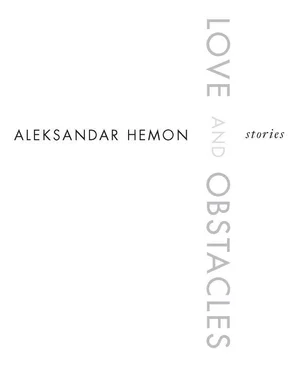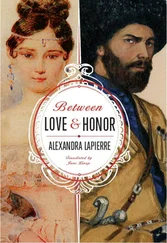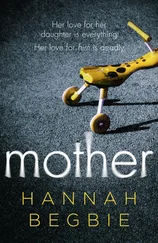Aleksandar Hemon - Love and Obstacles
Здесь есть возможность читать онлайн «Aleksandar Hemon - Love and Obstacles» весь текст электронной книги совершенно бесплатно (целиком полную версию без сокращений). В некоторых случаях можно слушать аудио, скачать через торрент в формате fb2 и присутствует краткое содержание. Издательство: Penguin USA, Inc., Жанр: Старинная литература, на английском языке. Описание произведения, (предисловие) а так же отзывы посетителей доступны на портале библиотеки ЛибКат.
- Название:Love and Obstacles
- Автор:
- Издательство:Penguin USA, Inc.
- Жанр:
- Год:неизвестен
- ISBN:нет данных
- Рейтинг книги:5 / 5. Голосов: 1
-
Избранное:Добавить в избранное
- Отзывы:
-
Ваша оценка:
- 100
- 1
- 2
- 3
- 4
- 5
Love and Obstacles: краткое содержание, описание и аннотация
Предлагаем к чтению аннотацию, описание, краткое содержание или предисловие (зависит от того, что написал сам автор книги «Love and Obstacles»). Если вы не нашли необходимую информацию о книге — напишите в комментариях, мы постараемся отыскать её.
Love and Obstacles — читать онлайн бесплатно полную книгу (весь текст) целиком
Ниже представлен текст книги, разбитый по страницам. Система сохранения места последней прочитанной страницы, позволяет с удобством читать онлайн бесплатно книгу «Love and Obstacles», без необходимости каждый раз заново искать на чём Вы остановились. Поставьте закладку, и сможете в любой момент перейти на страницу, на которой закончили чтение.
Интервал:
Закладка:
But I do not want to give the impression that I thought about him a lot or even often. The way you never forget a song from your childhood, the way you hear it in your mind’s ear every once in a while—that’s how I remembered him. He was well outside my life, a past horizon visible only when the sky of the present was particularly clear.
As it was on the cloudless morning of September 11, 2001, when I was on a plane to D.C. The flight attendant was virginally blond. The man sitting next to me had a ring of biblical proportions on his pinkie. The woman on my right was immensely pregnant, squeezed into a tight red dress. I, of course, had no idea what was going on—the plane simply landed in Detroit and we disembarked. The Twin Towers were going down simultaneously on every screen at the unreal airport; maintenance personnel wept, leaning on their brooms; teenage girls screamed into their cell phones; forlorn pilots sat at closed gates. I wandered around the airport, recalling the lines from Dedo’s poem: Alive, I will be, when everybody’s dead. / But there will be no joy in that, for all those / undone by death need to pass / through me to reach hell.
While America settled into its mold of patriotic vulgarity, I began to despair, for everything reminded me of Bosnia in 1991. The War on Terror took me to the verge of writing poetry again, but I knew better. Nevertheless, I kept having imaginary arguments with Dedo, alternately explaining to him why I had to write and why I should not write poetry, while he tried to either talk me out of writing or convince me that it was my duty. Then, last winter, I was invited to read in Madison and hesitantly accepted. Dedo was the reason for both the hesitation and the acceptance, for I was told that he would be one of the other readers.
So there I was, entering the large university auditorium. I recognized Dedo in the crowd by his conspicuous shortness, his bald dome reflecting the stage lights. He was changed: he’d lost weight; everything on him, from his limbs to his clothes, seemed older and more worn; he wiped his hands on his corduroy pants, nervously glancing up at the people around him. He was clearly dying to smoke, and I could tell that he was not drunk enough to enjoy the spotlight. He was so familiar to me, so related to everything I used to know in Sarajevo: the view from my window; the bell of the dawn streetcar; the smell of smog in February; the shape that the lips assume when people pronounce their soft Slavic consonants.
“Dedo,” I said. “Šta ima?”
He turned to me in a snap, as if I had just woken him up, and he did not smile. He didn’t recognize me, of course. It was a painful moment, as the past was rendered both imaginary and false, as though I had never lived or loved. Even so, I introduced myself, told him how we used to drink together at the Writers’ Club; how he used to sing beautifully; how often I remembered those times. He still couldn’t recall me. I proceeded with flattery: I had read everything he’d ever written; I admired him, and as a fellow Bosnian, I was so proud of him—I had no doubt that a Nobel Prize was around the corner. He liked all that and nodded along, but I still did not exist in his memory. I told him, finally, that he used to think I was a conductor. “Dirigent!” he exclaimed, smiling at last, and here I emerged into the light. He embraced me, awkwardly pressing his cheek against my chest. Before I could tell him that I had never conducted and still was not conducting, we were called up to the stage. He had a rotten-fruit smell, as if his flesh had fermented; he went up the stairs with a stoop. Onstage, I poured him a glass of ice water, and instead of thanking me, he said, “You know, I wrote a poem about you.”
I do not like reading in front of an audience, because I am conscious of my accent and I keep imagining some American listener collecting my mispronunciations, giggling at my muddled sentences. I read carefully, slowly, avoiding dialogue, and I always read the same passage. Often, I do it like a robot—I just read without even thinking about it, my lips moving but my mind elsewhere. So it was this time: I felt Dedo’s gaze on my back; I thought about his mistaken memories of me conducting a nonexistent orchestra; I wondered about the poem that he had written about me. It could not have been the poem with the spider-conductor, for surely he knew that I was not in Sarajevo during the siege. Who was I in his poem? Did I force the musicians to go beyond themselves, to produce sublime beauty on mistuned instruments? What were we playing? Beethoven’s Ninth? The Rite of Spring? Death and Transfiguration? I sure as hell was not conducting the Madison audience well. They applauded feebly, having all checked out after the first paragraph or so, and I feebly thanked them. “Super,” Dedo said when I crawled back into my seat, and I could not tell whether he was being generous or whether he just had no idea how bad it really was.
Dedo was barely visible behind the lectern. Bending the microphone down like a horribly wilted flower, he announced that he was going to read a few poems translated into English by his “angel wife.” He started from a deep register; then his voice rose steadily until it boomed. His vowels were flat, no diphthongs audible; his consonants were hard, maximally consonanty; thes were duhs ; no r ’s were rolled. His accent was atrocious, and I was happy to discover that his English was far worse than mine. But the bastard scorched through his verses, unfettered by self-consciousness. He flung his arms like a real conductor; he pointed his finger at the audience and stamped his foot, leaning toward and away from the microphone, as two young black women in the first row followed the rhythm of his sway. Then he read as if to seduce them, whispering, slowly:
Nobody is old anymore—dead or young, we are.
The wrinkles straighten up, the feet no longer flat.
Cowering behind garbage containers, flying away
from the snipers, everybody is a gorgeous body
stepping over the corpses, knowing:
We are never as beautiful as now.
Later I bought him a series of drinks at a bar full of Badgers pennants and kids in college-sweatshirt uniforms, blaring TVs showing helmeted morons colliding head-on. We huddled in the corner, close to the toilets, and drank bourbon upon bourbon; we exchanged gossip about various people from Sarajevo: Sem was in D.C., Goran in Toronto; someone I knew but he could not remember was in New Zealand; someone I had never known was in South Africa. At a certain point he fell silent; I was the only one talking, and all the suppressed misery of living in America surged from me. Oh, how many times I had wished death to entire college football teams. It was impossible to meet a friend without arranging a fucking appointment weeks in advance, and there were no coffee gardens where you could sit and watch people walk by. I was sick of being asked where I was from, and I hated Bush and his Jesus freaks. With every particle of my being I hated the word “carbs” and the systematic extermination of joy from American life, et cetera.
I don’t know whether he heard me at all. His head hung low and he could have been asleep, until he looked up and noticed a young woman with long blond hair passing on her way to the toilet. He kept his gaze on her backpack, then on the toilet door, as if waiting for her.
“Cute,” I said.
“She is crying,” Dedo said.
We went to another bar, drank more, and left after midnight. Drunk out of my mind, I slipped and sat in a snow pile. We laughed, choking, at the round stain that made it seem as if I had soiled my pants. The air was scented with burnt burgers and patchouli. My butt was cold. Dedo was drunk too, but he walked better than I, skillfully avoiding tumbles. I do not know why I agreed to go home with him to meet his wife. We wobbled down quiet streets, where the trees were lined up as if dancing a quadrille. He made me sing, and so I sang: Put putuje Latif-aga / Sa jaranom Sulejmanom. We passed a house as big as a castle; a Volvo stickered with someone else’s thought; Christmas lights and plastic angels eerily aglow. “How the fuck did we get here?” I asked him. “Everywhere is here,” he said. Suddenly he pulled a cell phone out of his pocket, as if by magic—he belonged to a time before cell phones. He was calling home to tell Rachel that we were coming, he said, so that she could get some food ready for us. Rachel did not answer, so he kept redialing.
Читать дальшеИнтервал:
Закладка:
Похожие книги на «Love and Obstacles»
Представляем Вашему вниманию похожие книги на «Love and Obstacles» списком для выбора. Мы отобрали схожую по названию и смыслу литературу в надежде предоставить читателям больше вариантов отыскать новые, интересные, ещё непрочитанные произведения.
Обсуждение, отзывы о книге «Love and Obstacles» и просто собственные мнения читателей. Оставьте ваши комментарии, напишите, что Вы думаете о произведении, его смысле или главных героях. Укажите что конкретно понравилось, а что нет, и почему Вы так считаете.












